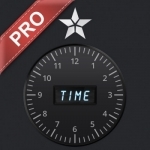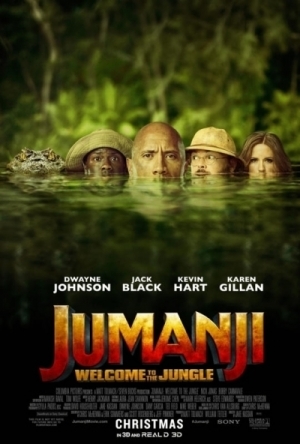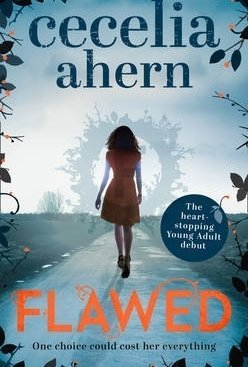
Meditation Sounds and Ambient Music to Meditate
Health & Fitness and Lifestyle
App
We believe that the term "meditation" is a result of differing sets of practices that are found...

TapGlance Interior Design
Lifestyle and Productivity
App
TapGlance is a powerful and intuitive interior design app. Within minutes and without any prior...

nearbuy.com: The Step-Out App
Lifestyle and Food & Drink
App
More than 4 million people across India are using nearbuy.com right now to discover new experiences...

TimeLock Pro: Encrypted Data Vault
Photo & Video and Utilities
App
No one will have the idea that there is a highly secure and protected data safe for private photos,...

Toca Life: Farm
Education and Entertainment
App
Work and play the farmer's way! Milk your cow, gather eggs from your hens and raise your crops. Have...

Jolly Phonics Letter Sounds
Education and Entertainment
App
Thank you for all the feedback we've received. It's great to hear that the app is helping children...

Paint Sparkles Draw
Education and Games
App
~~~ Top selling education app! Over 11,000,000 downloads around the world! ~~~ ~~~ No.1 Kids...
Kris Karcher (10 KP) rated Jumanji: Welcome to the Jungle (2017) in Movies
Jan 5, 2018
Semantics aside, Jumanji: Welcome to the Jungle is also a serviceable blockbuster flick. It’s a fun film that moves at a decent pace and avoids a lot of the typical dull spots most popcorn flicks fall victim to. The adult cast is a fun mixture of comedic talent and have some great chemistry together. The teenage cast less so but they have a more limited role in the film. I enjoyed watching the adult cast attempt to convey the teenagers “inside” them. Dwayne Johnson does this particularly well, playing a timid nerdy teenager trapped in the body of a jacked, smoldering, elite fighting machine. The film purposefully miscast each role. Kevin Hart play’s the avatar of a 6ft football star, Jack black stands in for a Mean Chick-esc selfie obsessed teenage girl, and the bad ass Karen Gillan plays the avatar of an insecure self-conscious teenage girl. The dichotomy of the characters real-life personalities always being at odds with their avatars new physical and mental attributes provides much of the comedy. Not all of it lands, but enough does and they don’t overdo it.
Once we enter the world of Jumanji the characters attempt to figure out how the “game” works. This leads to some humorous video game style exposition. I found this method of exposition to be unique and interesting. Incorporating NPC’s (Non-playable characters) whose sole purpose is to help players figure out what is going on and how to play the game was a fun and meta way to advance the story. It sort of reminds me of some of the things I enjoyed about 2012’s Wreck-It Ralph.
Then the gang runs into the other player in the game and another star of the film, Nick Jonas. Jonas plays Jefferson "Seaplane" McDonough who is the avatar of Zack a teenage boy sucked into the game in 1997 (Jonas uses 1997 lingo frequently. Radical.) and has lived in the jungle for what he claims to be “a few months”. This leads to the biggest missed opportunity of the film. Time apparently moves differently in Jumanji. A few months in Jumanji translates to 20 years in real life. When Zack is told he has been missing 20 years this should have been a major B plot. They do try and add some weight to the situation by showing how deeply affected Zack is by this news, but I feel they could have explored this dynamic a bit further. Especially when it comes to the ending. Which is a bit anticlimactic. Once they all end up working together to escape Jumanji they all are all transported back to their respective timelines and it would appear as though no time has passed. So it sort of ditches the whole being stuck in the game for 20 years angle and instead chooses to allow Zack to live a full and complete life starting from 1997. Also, the main cast seems to be unaffected timeline wise. All of this film took place while they were down in the basement serving their detentions. It would have made for a much more interesting ending if they return to their bodies and find out that in the real world they were gone for a longer period of time. Even just a week or so would have added an interesting dynamic to the pretty flat and standard ending. They do end up meeting up with grown-up Zack (Played by Colin Hanks) and there is a nice little payoff to the quasi-romance Nick Jonas and Jack Black had throughout the film. (Yes you read that correctly.) Alex named his daughter after Bethany who saved his life in the jungle.
The four teenagers all learn valuable life lessons inside the jungle. Fridge leans to appreciate his friend Spencer. Spencer learns to man up and take risks. Bethany learns to care about something other than herself and her popularity, and Martha learns to come out of her shell a bit and open up. While I often find these types of stories to be heavy-handed and snooze-worthy Jumanji manages to keep the gushy feel good stuff to a minimum. It’s there, and it’s obvious but it’s not in your face enough to bring down the movie.
Ultimately I will go ahead and recommend Jumanji: Welcome to the Jungle if your into Action comedy that doesn't ever take itself too seriously. I repeat this is not a serious movie. But it is a mildly funny, family-friendly romp that I fully expect anyone who paid for a ticket to at least get their monies worth. Provided they came in with the right expectations.
Cecelia Ahern is the well-known Irish author of contemporary women’s fiction, particularly P.S. I Love You. However, Ahern has decided to branch out and has penned her first dystopian, young adult novel, Flawed. It is dubious when an author, who is loved for her work, changes their style, but it appears she has pulled it off.
Seventeen-year-old Celestine is a logical girl who is soon to learn she lives in an illogical world. In an attempt to create a perfect society, citizens must avoid making moral or ethical mistakes; otherwise they will be branded as Flawed. And branded means literal branding with a hot iron, there is no hiding the fact that they have flaws. Celestine, like everyone else, has been brainwashed into believing that Flawed people should be avoided and do not deserve the same privileges as the “perfect” people. However, after seeing an elderly Flawed man choking on a bus, her logical brain kicks in and goes to help him. Big mistake.
After finding herself accused of being Flawed, Celestine reaslises how corrupt society is, yet there is nothing she can do about it without enduring further punishment. Despite her bleak outlook on her future, her hopes begin to rise when she discovers that there are people on her side – people that want rid of the government that disciplines people when they should not be punished in the first place.
As a reader of Ahern’s previous works and a fan of dystopian fiction, I honestly did not expect Flawed to be any good. Ahern has proved she has the talent to write women’s fiction, but this book was a complete contrast. The first few chapters of the novel were admittedly a bit shaky. It did not look promising. Yet eventually Ahern found her flow and produced a pretty good young adult novel.
When I saw the title, Flawed, I immediately assumed it would be a book about physical appearance and was hesitant about reading it. Therefore I was pleasantly surprised when this was not the case at all. The concept is fresh and original and does not become apocalyptical like many other dystopian fictions.
How the majority will receive this book is difficult to say. Fans of Cecelia Ahern may be disappointed by her change in genre. Fans of dystopia may be put off by the author’s previous novels. I urge readers to approach this story with an open mind; you may be pleasantly surprised. Flawed will not look out of place amongst other books of similar themes, and for those who do enjoy it, there will be a sequel, Perfect, next year.


